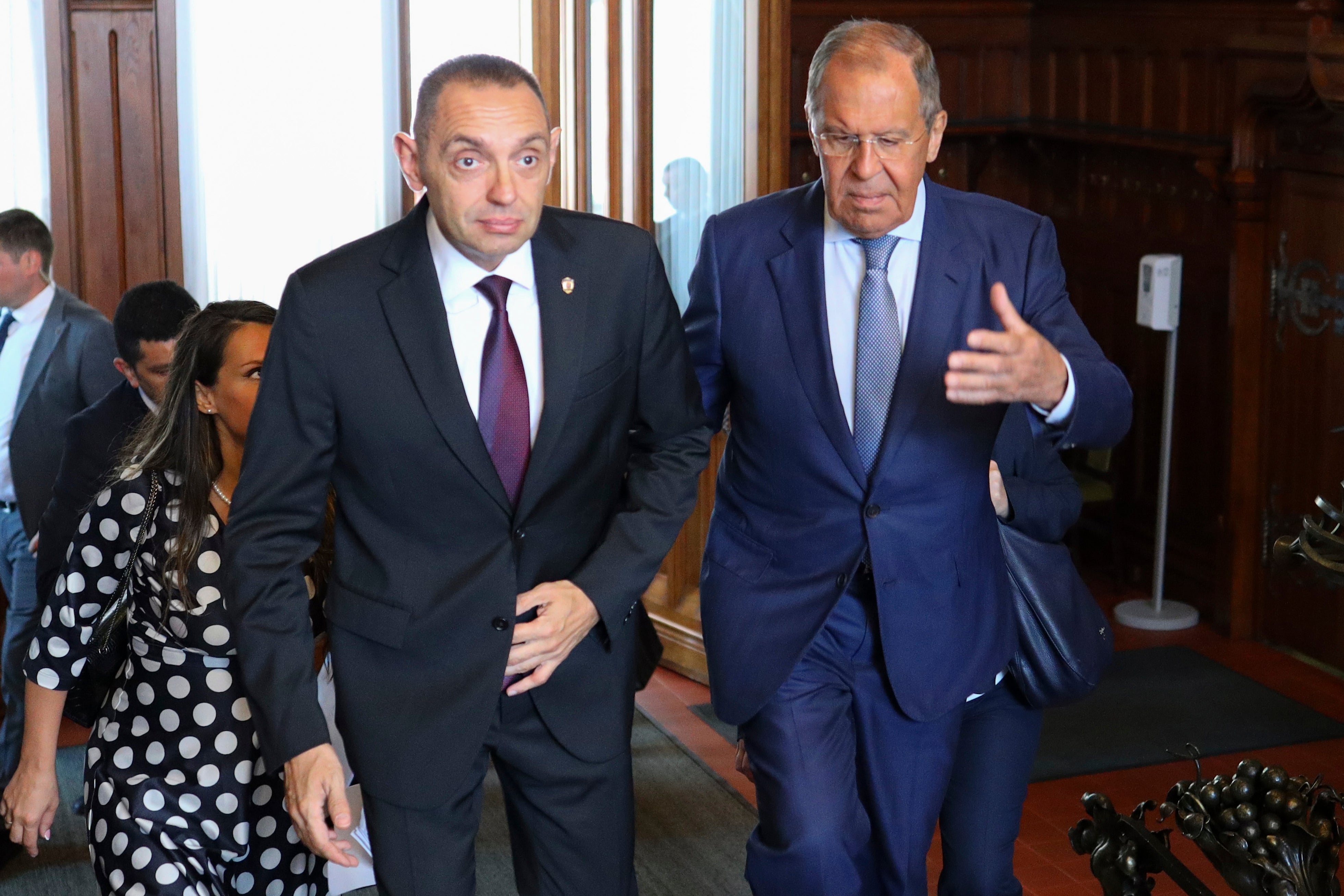Serb official visits Moscow, calls sanctions EU 'hysteria'
Serbia’s interior minister has met with Russian Foreign Minister Sergey Lavrov in Moscow in a rare visit by a state official from Europe

Your support helps us to tell the story
From reproductive rights to climate change to Big Tech, The Independent is on the ground when the story is developing. Whether it's investigating the financials of Elon Musk's pro-Trump PAC or producing our latest documentary, 'The A Word', which shines a light on the American women fighting for reproductive rights, we know how important it is to parse out the facts from the messaging.
At such a critical moment in US history, we need reporters on the ground. Your donation allows us to keep sending journalists to speak to both sides of the story.
The Independent is trusted by Americans across the entire political spectrum. And unlike many other quality news outlets, we choose not to lock Americans out of our reporting and analysis with paywalls. We believe quality journalism should be available to everyone, paid for by those who can afford it.
Your support makes all the difference.Serbia’s interior minister met with Russian Foreign Minister Sergey Lavrov on Monday in Moscow in a rare visit by a state official from Europe, highlighting Belgrade’s refusal to join Western sanctions against Russia over its war in Ukraine.
Interior Minister Aleksandar Vulin, who is known for his pro-Russia and anti-Western stance, said he told Lavrov during their meeting that “Serbia is the only state in Europe that didn’t introduce sanctions and was not part of the anti-Russian hysteria.”
Serbia, which formally seeks European Union membership, has for years been drifting away from its EU path and toward traditional Slavic ally Russia, as well as China.
Vulin is considered “Moscow’s man” within the Serbian government.
Vulin has been advocating the creation of “the Serbian World” that would unite all Serbs in the Balkans under one flag led by Serbian President Aleksandar Vucic.
Vulin has said that Serbia should abandon its EU membership goal and instead turn to Moscow, and he has often blasted Serbia’s neighbors and their leaders, calling them derogatory names.
Last year, Vulin had created a “working group” with Nikolai Patrushev, the powerful secretary of the Kremlin’s Security Council, to fight “color revolutions” -- a series of mass protests that sometimes led to the toppling of regimes in the former Soviet Union, the former Yugoslavia, the Middle East and Asia.
Serbian independent media reported that at their meeting in Moscow late last year, Vulin handed to Patrushev wiretaps from a Belgrade meeting held by members of the Russian opposition. It has been difficult for opposition groups to organize meetings in Russia, so they chose Belgrade as they don't need visas to enter Serbia.
Shortly afterwards, some of those who attended the meeting in Belgrade were arrested in Russia. Vulin has unconvincingly denied that he handed over the tapes to Patrushev.
Serbian opposition officials have been questioning the purpose of Vulin’s visit to Moscow as a new Serbian government is about to be formed — long-awaited after the April general election. Most believe that his trip to Russia was organized by Moscow as a way to pressure Belgrade to include him in the new Cabinet.
Lavrov had planned to visit Belgrade in June, but Serbia’s NATO-member neighbors have refused to allow his plane to fly over their territory.
Vulin said in a statement from Moscow on Monday that he “deeply regrets the fact that Minister Lavrov was prevented from visiting Belgrade in June by the will of other countries, pointing out that by banning Minister Lavrov’s official visit to Serbia, all principles of international law were violated.”